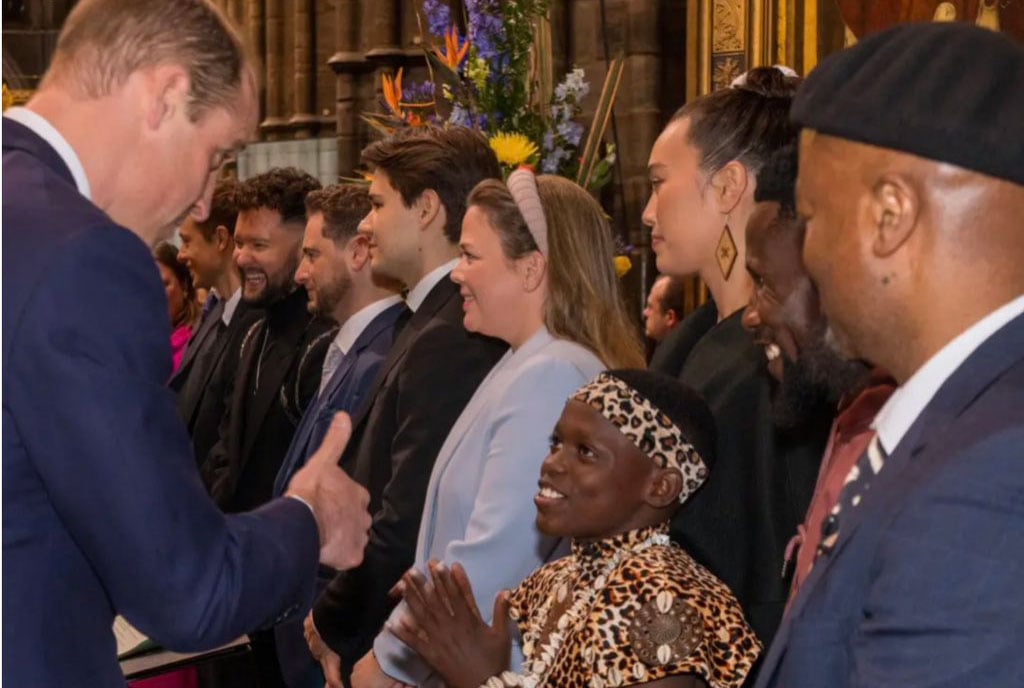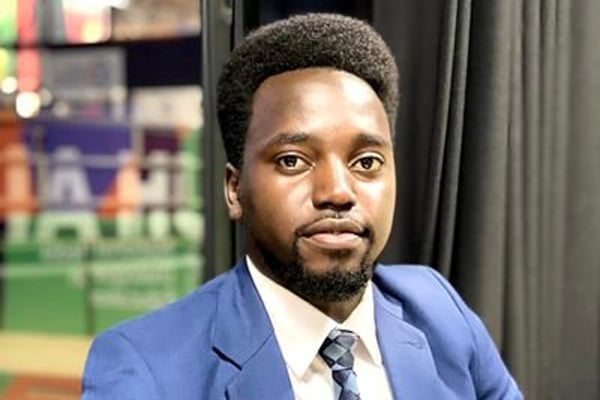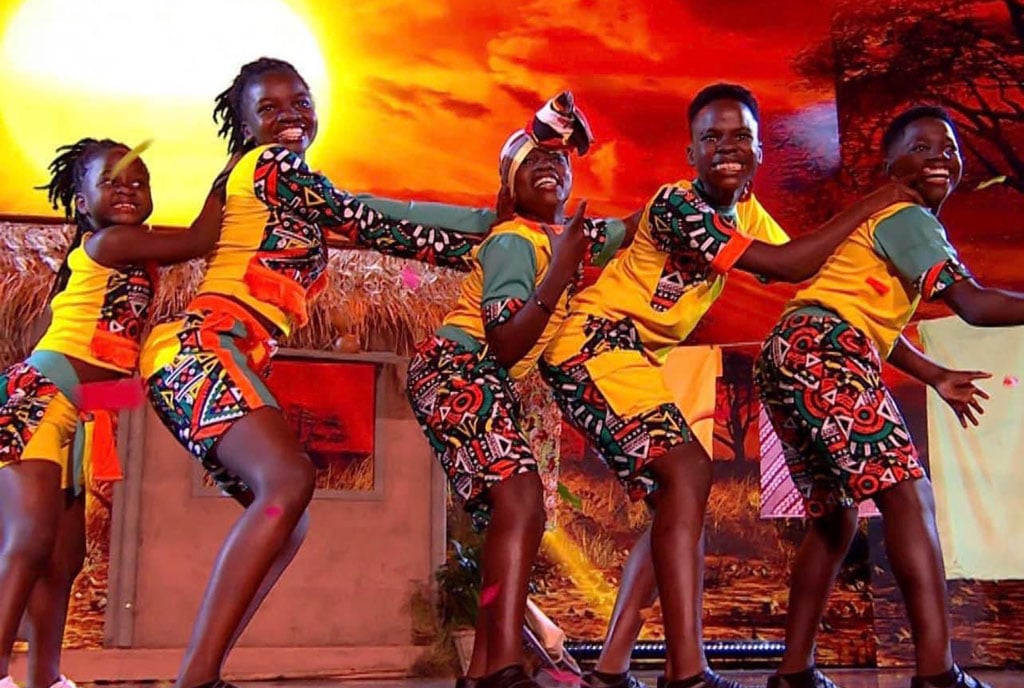Prime
The making of Ghetto Kids’ Westminster Abbey special

Prince William greets one of the members of the Triplets Ghetto Kids at Westminster Abbey in London, United Kingdom on March 18, 2024. PHOTO/COURTESY
What you need to know:
- The Triplets Ghetto Kids recently captured attention with their mesmerising performance at the Commonwealth Day Service in Westminster Abbey, London, showcasing traditional dances from Uganda.
The Triplets Ghetto Kids have once again been in the spotlight following their highlighted performance at the Commonwealth Day Service held at Westminster Abbey in London, United Kingdom last Monday.
Their performance, meticulously choreographed to embody the spirit of thanksgiving to God, transcended geographical boundaries, offering attendees, including esteemed guests like Queen Camilla and Prince William, a glimpse into the cultural mosaic of Uganda.
Triplets Ghetto Kids, an ensemble rooted in uplifting Ugandan orphans through education and empowerment, brought to life a mesmerising array of traditional dances. The dances represented various regions of Uganda.
“The dances they did take you on a quick brief journey through Uganda’s rich and beautiful culture as they praise and give thanks to the almighty,” Uncle Walter Ruva, who worked on the performance concept and idea, told Sunday Monitor this past week.
Beauty in diversity
Clad in traditional backcloth and leopard print tops with head ribbons, the group that comprised both boys and girls took to the floor after being introduced to the audience.
From the southwestern part of Uganda, encompassing Bakiga, Banyankole, Bahima, and Batwa communities, a song entitled Twakushaba (we pray for all the guidance, peace and protection) opened their performance. Resonating, the dance presented was a blend of Kizino and Kitagururo, emblematic of the regions of south and western Uganda.
Transitioning to the central (Buganda), the song Katonda Yebale (thank you God we will praise and worship you forever) was sung accompanied by traditional dances such as Bakisimba, Nankassa, Muwogola, and Mbaga.
The performance continued with “Uganda Moto”, a Swahili word for fire, where the dance form known as Mwaga, also referred to as Kadodi or Imbalu dance, unfolded, symbolising the eastern region of Uganda.
Finally, the expedition reached the northern part of Uganda, marked by the song Wafoyo (Alur) or Wapwoyo (Acholi), both Luo expressions meaning “we give thanks” or directly translated as “we thank you.”
After their performance, the Ghetto Kids were given a thunderous handclap by the audience.
“The piece performed rhymed under the theme of thanksgiving, aligning with the spirit of the Commonwealth Day Service,” remarked Uncle Walter Ruva.
The performance saw each dance segment precisely timed to deliver a seamless narrative of gratitude, celebration, and cultural richness.
Collaboration, preparation
The theme for this year’s Commonwealth Service at Westminster Abbey was “One Resilient Common Future: Transforming our Commonwealth”, focusing on the idea of gratitude and unity among the Commonwealth countries.
For the Ghetto Kids, the decision to centre their performance theme around thanksgiving, Ruva notes, stemmed from the significance of acknowledging God—the protector’s role within these Commonwealth nations. Ruva notes that more than a month before the main performance, he was approached by his mentee Matthew Nandala—the performance’s lead choreographer—and the Ghetto Kids team leader—Dauda Kavuma—to give birth to an idea for something memorable to perform at Westminster Abbey. The rest, as they say, is history.
The performance, initially planned for 3.5 minutes, was extended due to the distance from where it started to ensure better visibility for the king and the Royal Family. However, the duration was still constrained by the live BBC broadcast requirements, limiting each performance to not more than five minutes. The choreography planning process was meticulous, with specific instructions provided from the outset, including the incorporation of live drums and dance elements, as well as detailed measurements of the performance space.
Other performers
At the event, the Triplets Ghetto Kids had the chance to perform alongside The choir of Westminster Abbey, a world-famous choir of boys and men, which plays a central role both in the daily choral services in the Abbey and in the many royal, state, and national occasions, which take place at the abbey.
Benson Wilson, an award-winning New Zealand-born Samoan baritone, and Isabella Moore, a soprano also hailing from New Zealand with Samoan heritage, participated. Spencer Klymyshyn, recognised by the Canadian Broadcast Corporation as one of Canada’s top classical musicians under 30, showcased his exceptional piano skills, earning praise from International Piano Magazine.
Adding to the ensemble was Jacob Portelli, the resident harpist of the Archdiocese of Malta and a founding member of the Cordia string quartet. Calum Scott, the English singer-songwriter famed for his stint on Britain’s Got Talent, brought his captivating voice to the stage. Additionally, the all-female Bhangra performance group Eternal Taal, known for their vibrant dhol drumming and dance, delivered an energetic performance, having previously graced events like the Glastonbury Festival and The Queen’s Diamond Jubilee.
Together, these performers contributed to the rich cultural and musical diversity at the event, creating a memorable experience for all in attendance. The event was broadcasted live in the United Kingdom on BBC One and BBC iPlayer.
Commonwealth unity
Organised by the Royal Commonwealth Society, the oldest charity dedicated to the Commonwealth, the Commonwealth Day Service of Celebration is the world’s premier public event to celebrate the Commonwealth.
The service provides an annual opportunity to promote the value of this voluntary association of nations bound together in common endeavour.
Guests of honour among the 2,000-strong congregation, included Members of The Royal Family, the Commonwealth Secretary-General, high commissioners, senior politicians and dignitaries from across the UK and the Commonwealth, alongside Commonwealth Games athletes, faith leaders, and more than 600 school children from across the United Kingdom.
Not only did the Commonwealth mark its 75th anniversary, 2024 is the second year of the Year of Youth in recognition of the tremendous contributions of young people in strengthening the people-to-people links that make this family of nations so special.
Performance titbits
The concept and idea: Uncle Walter Ruva, Mathew Nandala, Esther Namata
Head choreographer: Mathew Nandala
Assistant choreographer: Chamuka AFRICA
Percussions and songs: Jaja Gitta Baker Paco





